Thank you for subscribing!
In August 2024, scholarship owl Learn more about how youth voting could affect the outcome of the 2024 election. Two studies were conducted:
- One study looked at the issues Gen Z voters care about most and also looked at their expected voting behavior.
- Another study focused on how respondents perceived themselves as liberal or conservative.
Given how close the 2024 election is expected to be; Many predict that young voters will have a big impact on the election. – Perhaps the scales will tip in favor of Democratic candidate Kamala Harris. Recent opinion polls bear this out.
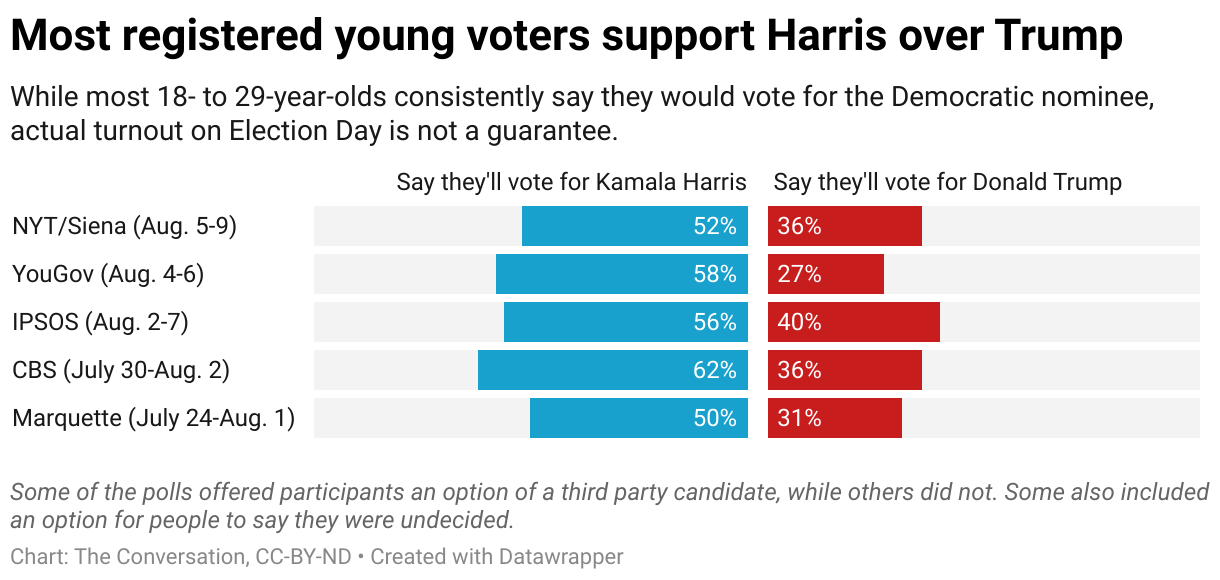
The ScholarshipOwl study is unique in that it involved thousands of students, whereas the segment mentioned above was much smaller.,and New York Times/Siena, YouGov, Ipsos and market All polls had fewer than 2,000 participants; CBS poll There were over 3,100 participants.
Issues and voting behavior survey
In August 2024, ScholarshipOwl surveyed 12,090 high school and college students on the ScholarshipOwl scholarship platform to learn more about the issues they care about and their likelihood of voting in the 2024 election.
Of the respondents, 62% were female, 37% were male, and 1.5% identified themselves as a different gender identity or did not wish to answer the question. Almost half (45%) were white, 24% were black, 18% were Hispanic/Latino, 7% were Asian/Pacific Islander, 2% were American Indian/Native American, and 5% selected “other.” Or they said they didn’t want to answer. That question.
Almost one-third (30%) of respondents were high school students; Well over half (58%) were college undergraduates, primarily first- and second-year college students. 9% were graduate students and 4% identified themselves as adult/nontraditional students.
Closed Question – Are you eligible to vote in the 2024 US election?
Because we wanted to focus on students eligible to vote in the 2024 election, we began our survey by asking closed-ended questions. We asked our students, “Are you eligible to vote in the 2024 U.S. election?”
- 78% (9395) said yes
- 22% (2695) said no
We then asked 9,395 voters to answer additional questions.
How likely are you to vote in the 2024 election?
- 75% say they are very likely to vote
- 18% said they were somewhat likely to vote
- 4% said they were unlikely to vote
- 3% said they had no intention of voting even though they were eligible to vote.
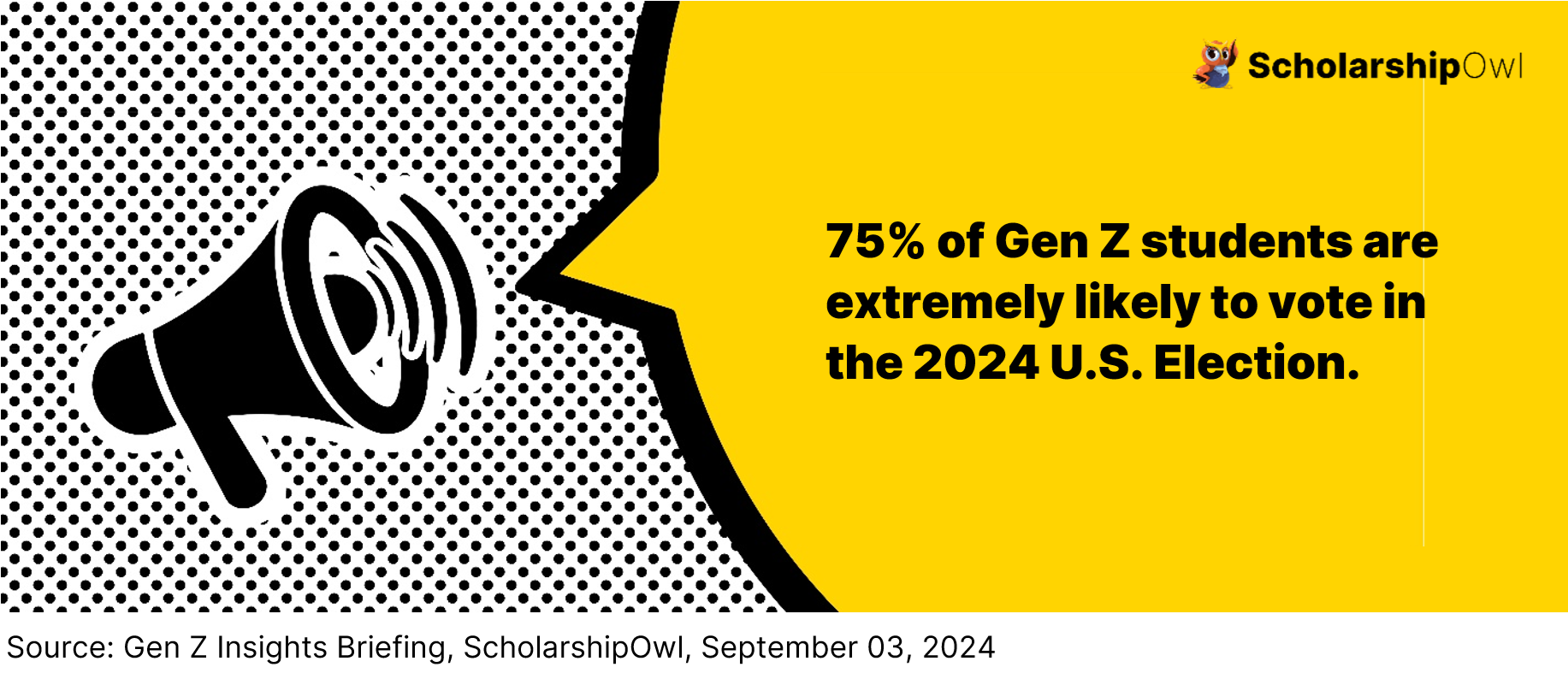
Which of the following policy issues will be most central to your voting choices in 2024?Select all that apply.
The majority of respondents selected more than one issue, indicating that several concerns will be top of mind when voting this year.
- Student loan debt and college tuition: 73%
- Inflation/Cost of Goods: 72%
- Employment and economy: 64%
- Healthcare: 54%
- Affordable housing/homelessness: 52%
- Taxes/Government Spending: 49%
- Social justice/civil rights: 48%
- Mental health/addiction: 47%
- Reproductive rights: 46%
- Gun violence: 39%
- Crime/Security: 36%
- Climate and environment: 34%
- Immigration policy/immigration reform: 32%
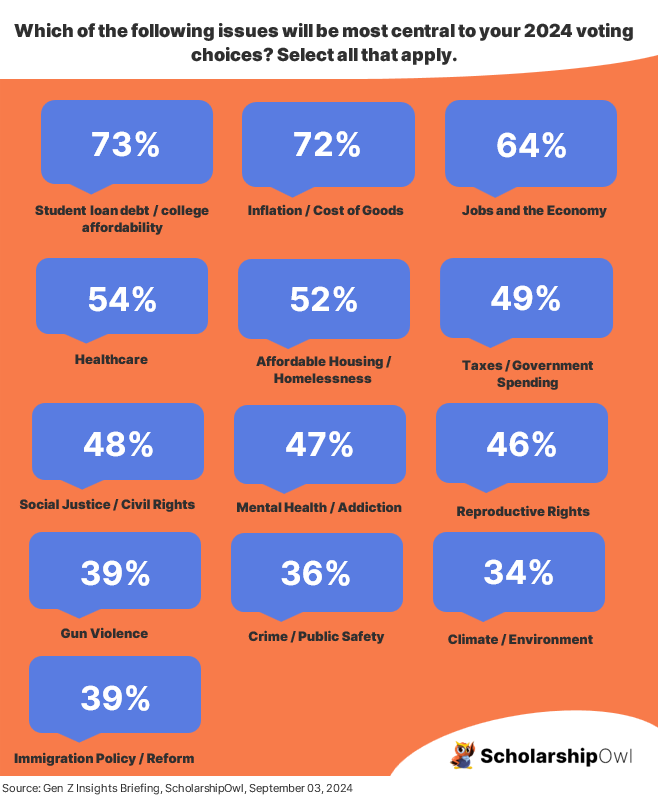
Are you more likely to vote for a candidate who outlines student loan reform policies?
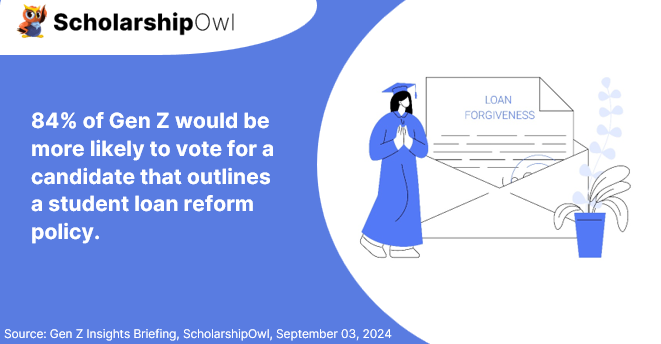
Do you think the current administration has solved the student loan problem?
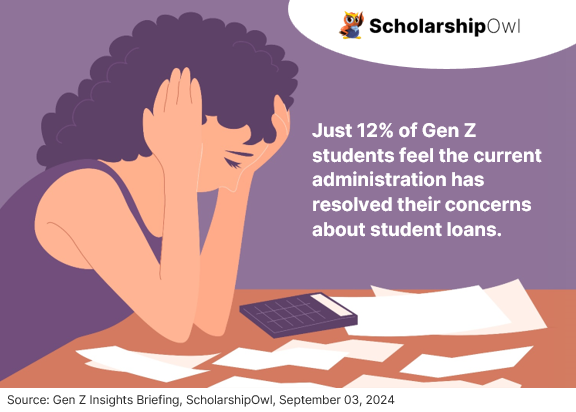
political spectrum survey
Also in August 2024, ScholarshipOwl conducted a survey of 13,657 high school and college students on its ScholarshipOwl scholarship platform to better understand where Gen Z falls on the political spectrum. .
Of the respondents, 62% were female, 37% were male, and 1.5% identified themselves as a different gender identity or did not wish to answer the question. Nearly half (44%) are white, one-quarter (25%) are black, 18% are Hispanic/Latino, 7% are Asian/Pacific Islander, 2% are American Indian/Native American, and 5% are Black. I selected “Other”. preferred not to answer questions.
Almost one-third (31%) of respondents were high school students; More than half (57%) were college undergraduates, primarily first- and second-year college students. 9% were graduate students and 4% identified themselves as adult/nontraditional students.
Note that the survey did not ask respondents whether they were eligible to vote in the 2024 election.
Which of the following best describes your political views?
In this survey, we asked only these questions to the participants.
- 56% say they are liberal
- 44% say they are conservative
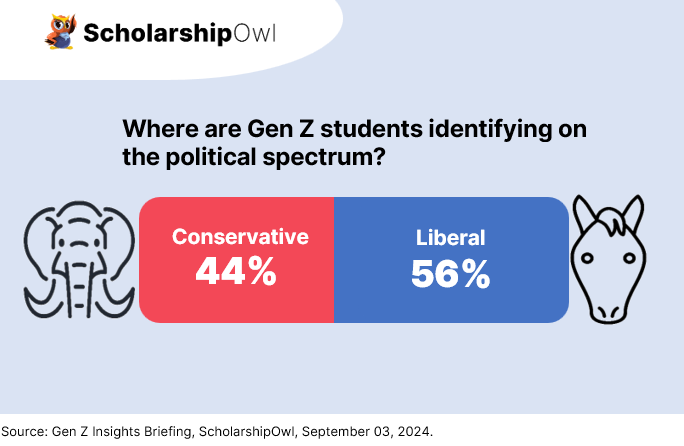
Important points
The results of these surveys show that Gen Z among voters could indeed have a significant impact on the 2024 election, with 75% of eligible young people voting in the 2024 US election. A further 18% indicate they are at least somewhat likely to vote. Only 7% said they were unlikely to vote or had no plans to vote. Given that the vote margins between Harris and Walz and between Trump and Vance are expected to be slim, young people’s votes will not only determine the winner of the 2024 US presidential election, but also the House and Senate. A winner may also be determined.
With young voters having a significant influence on elections, candidates may need to pay close attention to the issues Gen Z cares about most. More than half of respondents said they were concerned about student loan debt and college affordability (73%), inflation/prices (72%), jobs and the economy (64%), health care (54%), and affordable housing. /Homelessness (52%) will be most central to voting choices when voting in the 2024 US election. As such, political candidates may want to prioritize these issues when reaching out to young voters and develop policy plans that respond to their concerns.
How can we ensure that Gen Z students are able to attend college regardless of the outcome of the election?
There are several steps students can take to ensure their admission to college.
- Prioritize scholarship applications scholarship owl. Apply for scholarships throughout the summer and throughout the academic year.
- Work part-time during the school year and full-time during breaks. Save the money you earn to go to university.
- File the FAFSA annually from your senior year of high school for every year of college, and continue to file annually until you complete your college education. The FAFSA opens on October 1st of each year.
- Once you receive scholarship offers, compare them and focus on choosing the most affordable university. If your first choice school offers less financial aid or scholarships than others, contact your school of choice to negotiate an offer to a more affordable school.
- Always consider starting with a community college that offers truly affordable options. Don’t forget that community colleges also offer federal and state grant aid and scholarships. So, even if you plan to attend community college, be sure to submit the FAFSA and apply for scholarships.
Remember: Student loans should be your last resort to pay for college. Focus on debt-free funding sources so you can graduate without the burden of paying thousands of dollars for college. Focus on applying for scholarships and jobs instead of loans so you can graduate debt-free. There’s an affordable path to college – for more information and to start applying for a scholarship, visit: www.scholarshipowl.com.